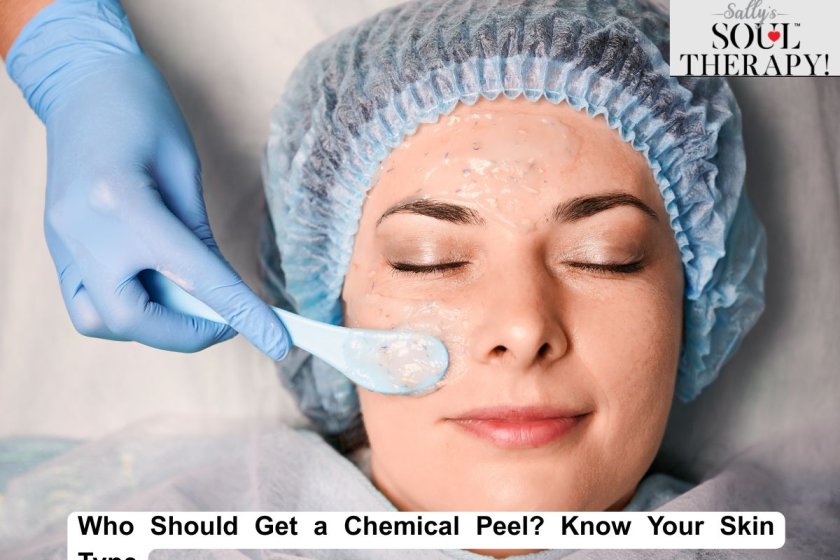Who Should Get a Chemical Peel? Know Your Skin Type
Table of Contents
- Introduction
- What is a chemical peel?
- Benefits of chemical peel
- Different skin types explained
- Which skin types should get a chemical peel?
- Who should avoid chemical peels?
- Types of chemical peels and their suitability
- How to prepare for a chemical peel?
- Aftercare and maintenance tips
- How to choose the best skin clinic?
- Protect your skin: Importance of sunscreen
- Conclusion
- FAQs
Introduction
Everybody wants smooth and radiant skin. Sometimes simple skincare is not sufficient. Chemical peels provide a solution to a lot of skin issues. But who should opt for a chemical peel? The solution lies primarily in your skin type. This blog will take you through knowing whether or not a chemical peel is suitable for your skin. It will also tell you what to expect during and after the procedure.
What is a chemical peel?
A chemical peel is a cosmetic procedure. It employs specific acids to eliminate layers of dead skin. This exposes smoother, fresher skin below. The procedure enhances skin texture, tone, and general appearance. Chemical peel treatment in Mumbai is gaining popularity because it shows results and there is less downtime. Individuals get peels to treat aging, acne, scars, and pigmentation.
Benefits of chemical peel
Chemical peels have numerous benefits. Some of the most important advantages include
- Smoothens rough skin and uneven texture.
- Reduces acne scars and explosions.
- Reduces fine lines and wrinkles.
- Lightens black spots and pigmentation.
- Increases collagen production for tight skin.
- Provides a bright, young-looking color.
However, many people believe in the top skin clinic in South Mumbai for successful peel treatments.
Different skin types explained
It is important to know your skin type before any skin treatment. The primary skin types are
- Normal skin: Balanced, neither too oily nor too dry.
- Dry skin: This is tight, flaky, or rough.
- Oily skin: Shiny and prone to acne and large pores.
- Combination skin: Both oily and dry in areas.
- Sensitive skin: Irritates easily, redness, or itchiness.
All skin types react differently to treatments. Learning this helps when choosing the right chemical peel.
Which skin types should get a chemical peel?
Chemical peels are ideal for all but the most sensitive skin, but with slight variations.
- Normal Skin
People who have normal skin reap huge benefits. A chemical peel gives the skin a brighter, natural sheen. It aids in preserving smooth texture and even coloring.
- Oily and Acne-Prone Skin
Oily skin has a lot of benefits from chemical peels. They cut back on excess oils and clog pores. The procedure curbs acne and keeps it at bay.
- Dry Skin
Dry skin can be helped with light chemical peels by removing dead cells. Harsh peels are irritating, however. Moisturizing afterwards is a must.
- Combination Skin
Chemical peels will even out combination skin by addressing oily and dry sections independently. The ideal strategy is an individualized peel.
- Sensitive Skin
Sensitive individuals need mild peels. Harsh chemicals will exacerbate irritation and redness. Always consult an expert first.
Who should avoid chemical peels?
Some people’s must stay away from or postpone chemical peels:
- Peoples with active infections of the skin or open sores.
- Person’s with serious eczema or psoriasis.
- People who have used Accutane or retinoids in the past few weeks.
- Pregnant or lactating women, except as cleared by a physician.
- Individuals prone to keloid scarring.
In case of doubt, consult the best dermatology clinic in South Mumbai.
Types of chemical peels and their suitability
There are three main types of chemical peels:
| Peel Type | Depth | Best For | Skin Type Suitability |
| Superficial | Light | Mild acne, dry skin, dullness | Normal, dry, sensitive (mild peels) |
| Medium | Moderate | Pigmentation, wrinkles, scars | Oily, combination, normal |
| Deep | Strong | Severe sun damage, deep scars | Mostly healthy, less sensitive skin |
Every peel is different in intensity and recovery. Your option can be guided by the number one skin clinic of South Mumbai.
How to prepare for a chemical peel?
Optimal results are guaranteed with proper preparation.
- Stay away from the sun for a minimum of 2 weeks.
- Discontinue exfoliants or retinoids a few days prior.
- Have moisturized, clean skin.
- Notify medications or allergy to your doctor.
- Follow any personal guidance from your dermatologist.
Moreover, preparation reduces side effects and facilitates treatment.
Aftercare and maintenance tips
Peel aftercare is essential. Do the following:
- Use a light cleanser and moisturizer.
- Avoid the sun for one or two weeks.
- Use SunShade SPF 50++ with Vitamin C Sunscreen every day.
- Avoid scratching and picking peeling skin.
- Clear until the hard, irritable skin care products are cured.
- Drink a lot of water and eat healthy.
Furthermore, these tips increase the results and avoid complications.
How to choose the best skin clinic?
Proper clinic selection is necessary for treatment that is effective and safe. Please follow the below points:
- Trained and licensed skin specialists.
- Patient feedback and good ratings.
- Clean and hygienic condition.
- Individualized treatment plans.
- Up-to-date equipment and quality products.
Most people opt for chemical peel treatment in Mumbai at prestigious clinics. It supports proper treatment and outcome.
Protect your skin: Importance of sunscreen
Your skin is more sensitive to the sun after a chemical peel. Use a high-potency sunscreen, then. SunShade SPF 50++ with Vitamin C sunscreen shields your skin from harmful UV light. It also repairs and clarifies the skin.
Additionally, apply sunscreen as a habit and reapply after exposure to sunlight. This habit saves your skin from sun damage and keeps your peel result.
Conclusion
Chemical peels can shape your skin if done well. First, know your skin type. It suits most skin types, but hypersensitivity and dermatological diseases need to be treated carefully. Pre-treatment and post-care are a must. Always get advice from the best skin Clinic in south Mumbai. Shield your skin with good-quality sunscreen like SunShade SPF 50++ with Vitamin C Sunscreen.
Therefore, if you want to improve the texture of your skin, remove the scars, or fight wrinkles of old age, you will need to take a chemical peel. It will lighten your skin and give you confidence.
FAQs
Most peels sting or burn slightly but hardly hurt.
Yes, medium and dark peels can reduce acne scars well.
Results appear after peeling and treatment time, usually 1 to 2 weeks.
Beware of makeup for a minimum of 48 hours following the treatment in an attempt to heal well.


